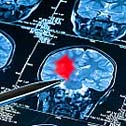Earthquake, Tsunami and Nuclear Crisis
On March 11, 2011, an earthquake struck off the coast of Japan, churning up a devastating tsunami that swept over cities and farmland in the northern part of the country and set off warnings as far away the west coast of the United States and South America. Recorded as 9.0 on the Richter scale, it was the most powerful quake ever to hit the country.
As the nation struggled with a rescue effort, it also faced the worst nuclear emergency since Chernobyl; explosions and leaks of radioactive gas took place in three reactors at the Fukushima Daiichi Nuclear Power Station that suffered partial meltdowns, while spent fuel rods at another reactor overheated and caught fire, releasing radioactive material directly into the atmosphere. Japanese officials turned to increasingly desperate measures, as traces of radiation were found in Tokyo's water and in water pouring from the reactors into the ocean.
By July, the count of dead and missing was above 22,000. Tens of thousands of people remained housed in temporary shelters or evacuated their homes due to the nuclear crisis.
The crisis also disrupted Japan's already turbulent political life, as Mr. Kan staved off a vote of no confidence only by promising to resign once the worst of the crisis was over. And it gave insight into the deep divisions between Mr. Kan's government and the alliance of bureaucrats and corporations that has dominated Japanese public life for decade. A onetime grass-roots activist, Mr. Kan struggled to manage the nuclear crisis because he felt he could not rely on the very mechanisms established by his predecessors to respond to such a crisis. In August, he was forced to resign.
In interviews and public statements, some current and former government officials have admitted that Japanese authorities engaged in a pattern of withholding damaging information and denying facts of the nuclear disaster — in order, some of them said, to limit the size of costly and disruptive evacuations in land-scarce Japan and to avoid public questioning of the politically powerful nuclear industry.
Words Difficult to Pronounce
tsunami [tsoo-nah-mee]
nuclear [noo-klee-er, nyoo-]
Richter [ rik-ter ]
reactors [ree-ak-ter]
earthquake [urth-kweyk]
northern [nawr-thern]
VOCABULARY
1. churning [chur-ning] - to shake or agitate with violence or
continued motion
Example: The storm churned the sea.
2. devastating [dev-uh-stey-ting] - to lay waste; to render
desolate; to overwhelm
Example: The invaders devastated the city.
3. set - off - triggered; initiate; precipitate
Example: The howl from inside the haunted house set - off the children running into different direction.
4. desperate [des-per-it, -prit] - rash, frantic
Example: Incarceration would be a last desperate necessity, not an easy first choice.
5. staved [steyvd] - break to pieces; splinter; smash
Example: Tens of billions of dollars of outsiders' money staved off
a catastrophe.
Words Difficult to Pronounce
tsunami [tsoo-nah-mee]
nuclear [noo-klee-er, nyoo-]
Richter [ rik-ter ]
reactors [ree-ak-ter]
earthquake [urth-kweyk]
northern [nawr-thern]
VOCABULARY
1. churning [chur-ning] - to shake or agitate with violence or
continued motion
Example: The storm churned the sea.
2. devastating [dev-uh-stey-ting] - to lay waste; to render
desolate; to overwhelm
Example: The invaders devastated the city.
3. set - off - triggered; initiate; precipitate
Example: The howl from inside the haunted house set - off the children running into different direction.
4. desperate [des-per-it, -prit] - rash, frantic
Example: Incarceration would be a last desperate necessity, not an easy first choice.
5. staved [steyvd] - break to pieces; splinter; smash
Example: Tens of billions of dollars of outsiders' money staved off
a catastrophe.
Discussion
1. What are the measures that your country implemented to prepare for an earthquake devastation?
2. What are the things that you do to prepare for any disaster?
